The Raising the Nation Play Commission recommends legislation to embed child-friendly design and planning principles across schools, homes and public spaces in England
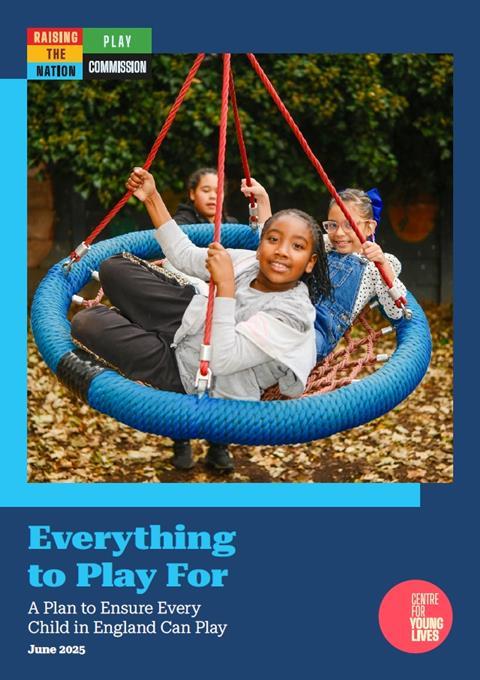
A year-long inquiry by the Raising the Nation Play Commission, chaired by architect Paul Lindley, has called for a new cross-departmental national play strategy to tackle the decline in children’s access to safe, inclusive and engaging places to play. The strategy is the headline recommendation of Everything to Play For, the Commission’s final report, launched today (11 June) to coincide with the UN’s International Day of Play.
Everything to Play For seeks to make children’s play a strategic priority for national and local government. It outlines proposals to integrate play into the design of neighbourhoods, public spaces and housing developments, supported by changes to the National Planning Policy Framework and planning guidance.
The document also calls for the appointment of a minister for play and the introduction of a statutory “play sufficiency duty” in England, similar to legislation in place in Wales and Scotland.
Lindley said the inquiry had found that “we have made it incredibly hard for children to play” in England. “Cuts to services, risk-averse planning, traffic-choked roads, an explosion of ‘No Ball Games’ signs, the rise of addictive social media, excessive screen time and shifting societal attitudes have all chipped away at the time, space, opportunity and freedom children once had to play.”
The report highlights the growing barriers to outdoor play, citing the closure of more than 400 playgrounds across England in the decade to 2022 and a £350m fall in annual park budgets between 2011 and 2023. It also notes that current planning policy places little emphasis on children’s needs, with many developments failing to include or maintain playable spaces.
Among its planning-related recommendations, the report proposes that new developments should incorporate child-friendly design standards, safe pedestrian and cycling access to schools, and playable public spaces within a 10-minute walk of homes. The strategy also seeks to prohibit “No Ball Games” signs in communal areas and promote the reuse of streets and underutilised spaces as temporary play areas.
The commission consulted with a wide range of experts and organisations in the built environment, including Arup, the Town and Country Planning Association and play advocacy groups. It also drew on examples of child-friendly urban strategies from the UK and abroad, such as the Urban Childhoods Masterplan in Belfast and the city-wide approach of Billund in Denmark.
Calls for improved integration of children’s needs in the planning system have grown in recent years. In 2024, MPs on the levelling up, housing and communities committee launched an inquiry into how built environment policies affect children and young people.
The commission’s report seeks to build on that momentum by positioning play as a key lever in achieving the government’s objectives on child health, wellbeing and school readiness.
The strategy recommends an annual budget of £125m to support its proposals, part-funded by the Soft Drinks Industry Levy and unspent Section 106 contributions. It also calls for updates to planning and design guidance to reflect children’s rights under the United Nations Convention on the Rights of the Child.
Baroness Anne Longfield, co-founder of the Centre for Young Lives and a partner in the commission, said: “Play is being squeezed out of childhoods, with drastic implications for children, our economy and public services. With so much at stake, children really have everything to play for.”


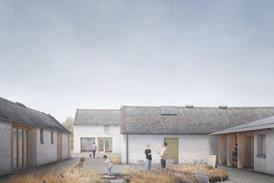
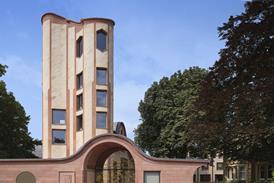
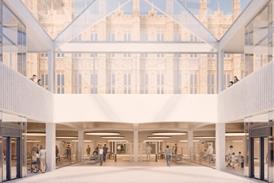
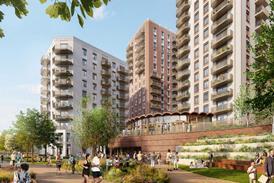










No comments yet